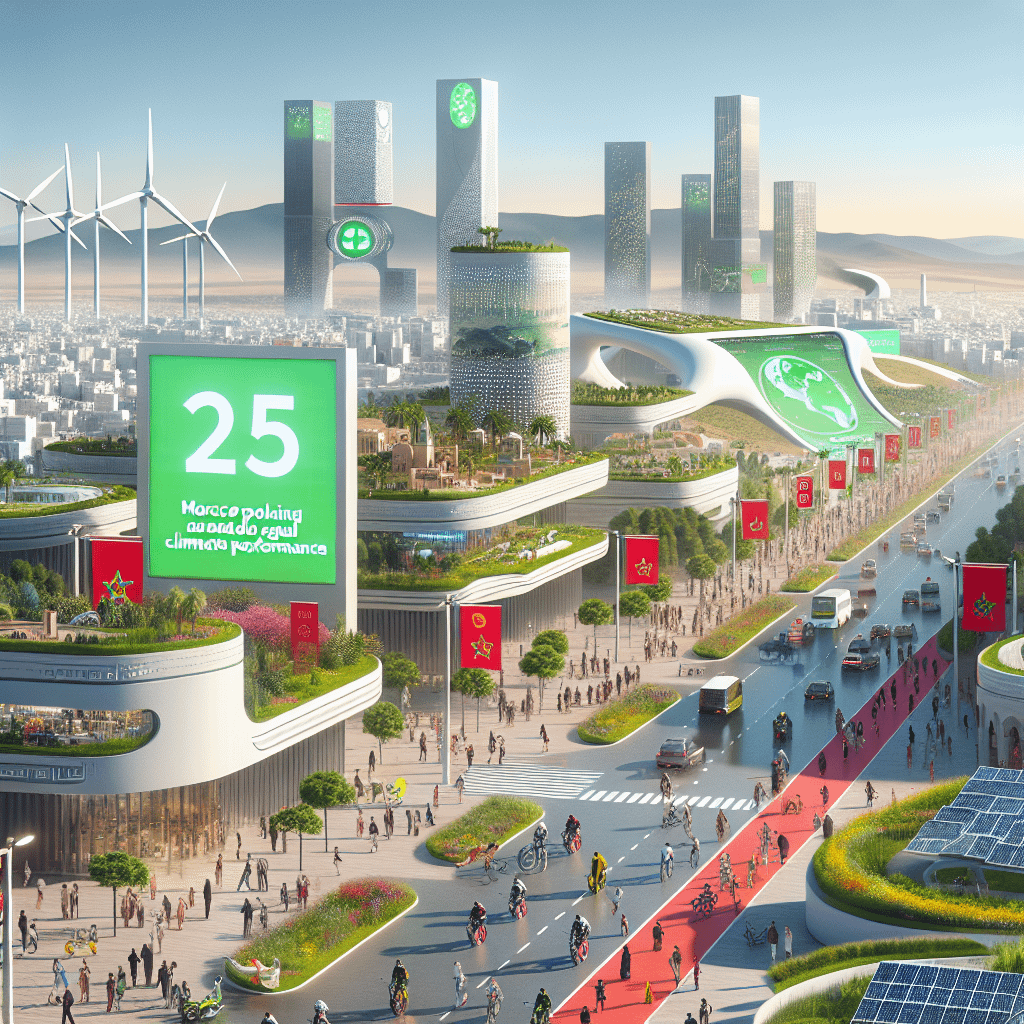Morocco has moved up one place to eighth in the 2025 Climate Performance Index (CCPI), which was presented during the United Nations Climate Change Conference 2024 (COP29) in Baku (Azerbaijan).Eighth in the ranking
Categories
Leader in sustainable development
Renewable energy
Eighth in the rankingWith a total score of 68.32, Morocco is at the top of the ranking, alongside Denmark, the Netherlands, the United Kingdom and the Philippines. It should be noted that, for all practical purposes, Morocco is the fifth country in the world in the ranking, as the top three positions have been left unoccupied, as no country scored high enough in all categories to obtain an outstanding grade.Climate Change Performance Index 2025 – PHOTO/Germanwatch 2024Morocco, a recognised regional leader in sustainable development and greenhouse gas reduction, is ahead of key countries in the field of decarbonisation, such as Norway, Sweden and Germany, and also ahead of the EU average (in 17th place, with a score of 63.76) and Spain (19th, with 61.57 points).CategoriesCountries’ scores in the ranking are calculated by combining individual scores in four categories: Climate Policy (20%); Energy Use (20%); Greenhouse Gas Emissions (40%); and Renewable Energy (20%).80% of the country performance assessment is based on quantitative data from international bodies such as the International Energy Agency (IEA), PRIMAP or FAO, as well as national greenhouse gas emission indices. The remaining 20% is based on the CCPI’s Climate Policy section.Morocco’s nearly completed Noor 3 solar power plant in Ouarzazate, central Morocco – AP/ ABDELJALIL BOUNHARThe CCPI report, which analyses the strengths and weaknesses of each country, specifies that Morocco has obtained a medium rating in Climate Policy; high in Greenhouse Gas Emissions and Energy Use; and low in Renewable Energies.Leader in sustainable developmentAccording to the report, ‘Morocco remains a leader in the CCPI rankings. The CCPI national experts consider it a regional leader in sustainable development and greenhouse gas reduction. The prioritisation of sustainable development is visible in the continued commitment to reach 52% of renewable energy in the energy mix by 2030’.Saudi Arabian company Acwa Power’s solar-powered windmill is shown at Jbel Sendouq, on the outskirts of Tangier, Morocco – REUTERS/YOUSSEF BOULLAThe experts also highlight the expansion of solar and wind energy generation projects on Moroccan territory.As negative points, the CCPI report highlights the excessive dependence on fossil fuels and the existence of local plans for gas extraction.Renewable energyThe detailed report on Morocco also highlights the barriers that the country has to overcome for the development of renewable energies: the high upfront costs of the necessary technology; the excessive dependence on external financing; and possible changes in the regulatory framework, which could discourage potential investors.Electri

